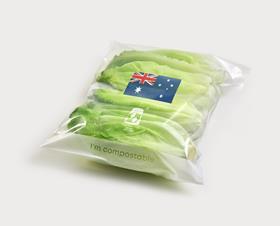
A poll commissioned by compostable packaging supplier Tipa has revealed 78 per cent of Australian adults believe the most effective solution to the plastic waste crisis is compostable packaging, not recycling.
Some nine-in-ten (89 per cent) of survey respondents are said to be concerned about the plastic waste generated from packaging, and a further 79 per cent believe the federal government should prioritise encouraging the use of compostable packaging over encouraging recycling plastic.
The Yonder survey of 2,001 Australian adults comes as the federal government continues to roll out plans to meet its target of all packaging being 100 per cent reusable, recyclable or compostable by 2025.
Australia produces an estimated 2.5m tonnes of plastic waste each year, some 84 per cent of which is sent to landfill. The current recycling rate for plastic packaging is estimated at just 16 per cent, according to Tipa.
Richard Fernandez, Tipa’s sales director for Australia, said the federal government’s ambition to tackle plastic pollution has established the nation as a leader on plastics policy.
“But these results show there is a desire among the public to see compostable packaging play an even bigger role,” added Fernandez.
“Compostable packaging is a proven and effective solution for the areas where recycling has its limitations. Flexible films which are used across consumer goods, and food packaging which is often contaminated and disposed of in landfill are case-in-point.
“We look forward to playing an active role in helping the Australian government integrate compostable packaging into the mix of solutions to tackle plastic waste,” he said.
The federal government has committed to increasing the volume of plastic recycled nationwide, with A$190m set aside to fund new recycling infrastructure.
But plastics recycling is not a silver bullet solution, according to Fernandez. He noted the difficult-to-recycle plastics such as films – used to package consumer goods including bread, fresh produce and clothing deliveries – are often viewed as uneconomical to recycle, and any plastic contaminated with food is taken out of the recycling waste stream.
“Compostable materials can be used to substitute plastic films to reduce their environmental impact,” Fernandez added.



